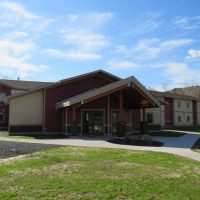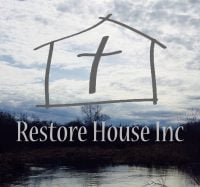Hope House
Drug Rehab Center in Grand Rapids, Minnesota
Hope House is an accredited addiction treatment facility located in Grand Rapids, Minnesota offering 24/7 detox services, customized treatment plans and supportive aftercare to individuals suffering from substance abuse and other co-occurring mental health issues.
About This Grand Rapids, MN Facility
Hope House, a private rehab facility nestled in Grand Rapids, Minnesota, has been providing comprehensive treatment for individuals battling alcoholism, drug addiction, dual diagnosis, mental health issues, and opioid addiction. With a history of delivering quality care, Hope House has established itself as a trusted name in the field of addiction treatment.
• State-licensed and SAMHSA-certified, ensuring adherence to industry standards and best practices
• Specialized programs tailored to address specific addictions, such as opioid addiction and alcoholism
• Dual diagnosis treatment that addresses both addiction and underlying mental health issues simultaneously
• Aftercare support and sober-living programs to help individuals maintain long-term recovery
Accredited by the State License and certified by SAMHSA (Substance Abuse and Mental Health Services Administration), Hope House demonstrates a commitment to providing evidence-based treatment in a safe and supportive environment. Their team of experienced professionals works closely with each individual to develop a personalized treatment plan that addresses their unique needs and goals.
At Hope House, individuals can access a range of treatment options for substance abuse, alcoholism, opioid addiction, and dual diagnosis. The facility offers various levels of care, including inpatient programs, dual-diagnosis treatment, and sober-living arrangements. Treatment methods encompass individual therapy, group therapy, family therapy, and educational programs, all designed to promote healing and personal growth.
Hope House recognizes the importance of ongoing support in maintaining long-term recovery. Through their aftercare programs, individuals can continue to receive guidance, resources, and a strong support network as they navigate the challenges of life after treatment. With a holistic approach and a dedication to empowering individuals to overcome addiction, Hope House provides a path towards a healthier, more fulfilling future.
Genders
Ages
Modality
Additional
Accreditations
State License
SAMHSA
Conditions and Issues Treated
Rehab centers exist in Grand Rapids, MN to help individuals bounce back from substance abuse, which is an umbrella term for drug and alcohol addiction. Drug addiction refers to the use of illegal drugs and improper use of prescription drugs. Centers like Hope House provide individuals a chance to access individual and group therapy that can be monumental for recovery.
Substance abuse includes all problems that stem out from using various psychoactive substances. It is also a diagnostic term used by Diagnostic and Statistical Manual of Mental Disorders (DSM-IV) to define the mental and physical impairment or distress caused by misuse and overuse of certain substances in a period of 12 months.
Opioid addiction involves addiction to legal or illegal opioids. It may happen very quickly with any opioid use. Sometimes within a matter of days. Opioid addiction is a known as a high-risk factor for future heroin addiction.
Opioid withdrawal can be extremely uncomfortable and lead the user to continue to use even if they want to quit. Stopping using an opioid requires careful medical observation. Sometimes the withdrawal can persist for many weeks, which can put the user at a high risk for relapse.
It is recommended to receive inpatient treatment and a medically supervised detox like those offered at Hope House in Grand Rapids, MN, MN, to manage the withdrawal process while learning lasting tools to maintain recovery. In some circumstances medications can be used to manage opioid addiction.
Substance use disorder falls under two categories: Alcohol or Drug Abuse and Drug Dependence. An individual suffering from a substance use disorder and mental health disorders is said to have a co-occurring disorder or a dual disorder. Individuals in Grand Rapids, MN with substance use disorders and mental health problems are said to suffer from a ‘dual diagnosis’.
The most frequently identified mental health issues found in individuals with substance use disorders include anxiety, depression, schizophrenia, and schizoaffective disorder.
Levels of Care Offered
This center offers a variety of custom treatment tailored to individual recovery. Currently available are Aftercare Support, Dual-Diagnosis, Inpatient, Sober-Living / Half-Way, with additional therapies available as listed below.
Inpatient rehab programs like what’s offered at Hope House in Grand Rapids, MN are ideal for covering all the bases that surround one’s addiction. It’s considered the most comprehensive approach to care for people afflicted with addiction. Patients live in a facility where they have access to therapy and medical care 24/7.
A sober living home functions as a bridge between the real world and an inpatient facility. Residents of an SLH in Grand Rapids, MN can come and go whenever they want. There are certain rules that residents have to follow, such as curfews and group meeting attendance. The SLH at Hope House provides freedom and structure to help readjust to life outside of rehab. It gives structure and accountability in life for staying motivated to abstain from substances.
Aftercare support involves the support given to a Grand Rapids, Minnesota patient after they complete treatment. It helps them adjust to normal life. It may include setting them up in a halfway house and enrolling them in programs like Narcotics Anonymous (NA) and Alcoholics Anonymous (AA). Hope House‘s patients may also be provided with career training to help them get back into the job force.
Hope House‘s Therapies & Programs
Individual therapy aims to identify the core issues that would have led the patient to substance abuse and address the root cause effectively. Patients find the therapist as a person who they can trust. It helps them to open up and discuss personal and sensitive issues, which they may not be comfortable discussing in a group.
Couples therapy is an approach wherein the patients and their partners are engaged together as a part of the treatment process. When a person becomes a victim of substance abuse, it affects the patient and the people around him, particularly his partner. Their relationship can become strained due to lack of communication, financial issues, loss of trust, lack of intimacy, and physical abuse in more severe cases.
Couples therapy addresses these issues and tries to rebuild the trust between the partners. The partner’s involvement in the process will result in greater chances of treatment success and sustained recovery.
Family therapy is a set of therapeutic approaches that assumes that the entire family is a system. It utilizes the strengths and resources of the family to help the patient refrain from resorting to substance abuse. It helps to repair relationships and improve communication between family members.
Group therapy happens at Hope House in a controlled group environment, as opposed to a one-on-one setting. It supports Grand Rapids, MN patients’ recovery by offering a sense of comfort and letting them know that they are not alone. Through shared conversations, patients also learn to develop faith and understanding and gain insight on their addictions.
Unresolved trauma is often a key reason why many patients resorted to substance abuse. Trauma therapy refers to treatment wherein specialist therapists help the patients to resolve the trauma that led the patients to substance abuse. The trauma could be physical abuse, sexual abuse, war, natural disasters, divorce, accident, loss of a loved one, etc. Thinking of these traumatic events causes emotional disturbances like anxiety, depression and results in addiction. If trauma is the primary cause of substance abuse, then both issues must be addressed. Otherwise, there is a risk of relapse. Trauma therapy also improves the cognitive functions and provides long term benefits.
Cognitive behavioral therapy (CBT) is a way of addressing concerns through talking. It can be used in individual counseling sessions. Talking through issues with professionals at Hope House can identify sources of discomfort or unhealthy thoughts. It is a way of learning about yourself and your individual perceptions. CBT is a healthy way of addressing some behaviors which may be bringing unintended consequences in your life.
Rational Emotive Behavior Therapy (REBT) sees a person suffering from substance addiction to have illogical reasoning, counterproductive actions, and does not see things clearly. Due to this, REBT deals with cognition, images, and behavior extensively to rectify the client’s bad habits. REBT pushes an individual to become more reasonable and choose a life without the repercussions of addictions.
Patients at Hope House in Grand Rapids, MN learn how to self-soothe by conducting rational self-counseling. REBT provides their patients with the skill sets necessary in handling problems all by themselves, without seeking professional help. The process calls for practice, reiteration, and bolstering the new way of thinking being introduced to the patient.
Payment Options Accepted
For specific insurance or payment methods please contact us.
Is your insurance accepted?
Ask an expert, call (888) 674-0062
Additional Details
Specifics, location, and helpful extra information.
Grand Rapids, Minnesota 55744 Phone Number(218) 326-1443 Meta DetailsUpdated April 15, 2024
Staff Verified
Patient Reviews
There are no reviews yet. Be the first one to write one.
Grand Rapids, Minnesota Addiction Information
Minnesota is fighting an opioid epidemic that is leaving hundreds of its residents dead each year. Both prescription opioids and illicit opioids are widely abused in the Land of 10,000 Lakes. Heroin continues to be one of the most commonly abused drugs in the state, if not the most common illicit drug. Over 10% of all treatment admissions in Minnesota list heroin as their drug of choice.
9.4% of people in Grand Rapids, Minnesota, reported using illicit drugs. This means that drug addiction can have a ripple effect on friends, family, and the community. The most common drugs involved in overdoses were opioids (heroin and prescription painkillers), which accounted for 67% of all drug overdoses in the city. The best drug treatment center in Grand Rapids will offer various treatment options, including detox, residential rehab, and outpatient care.
Treatment in Nearby Cities
- Osseo, MN (145.8 mi.)
- Scandia, MN (140.4 mi.)
- Perham, MN (107.3 mi.)
- Ely, MN (89.3 mi.)
- Alexandria, MN (128.8 mi.)
Centers near Hope House
The facility name, logo and brand are the property and registered trademarks of Hope House, and are being used for identification and informational purposes only. Use of these names, logos and brands shall not imply endorsement. RehabNow.org is not affiliated with or sponsored by Hope House.







